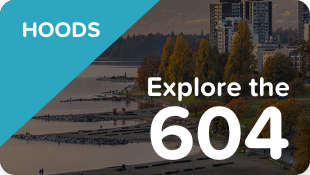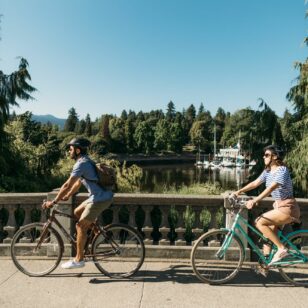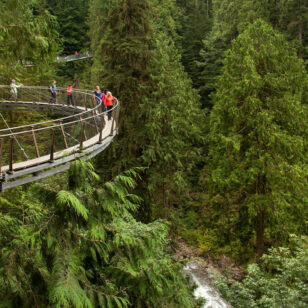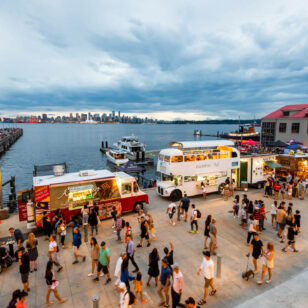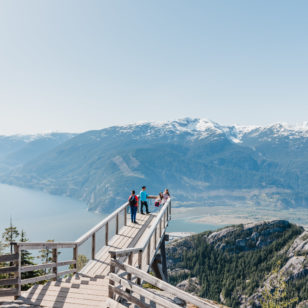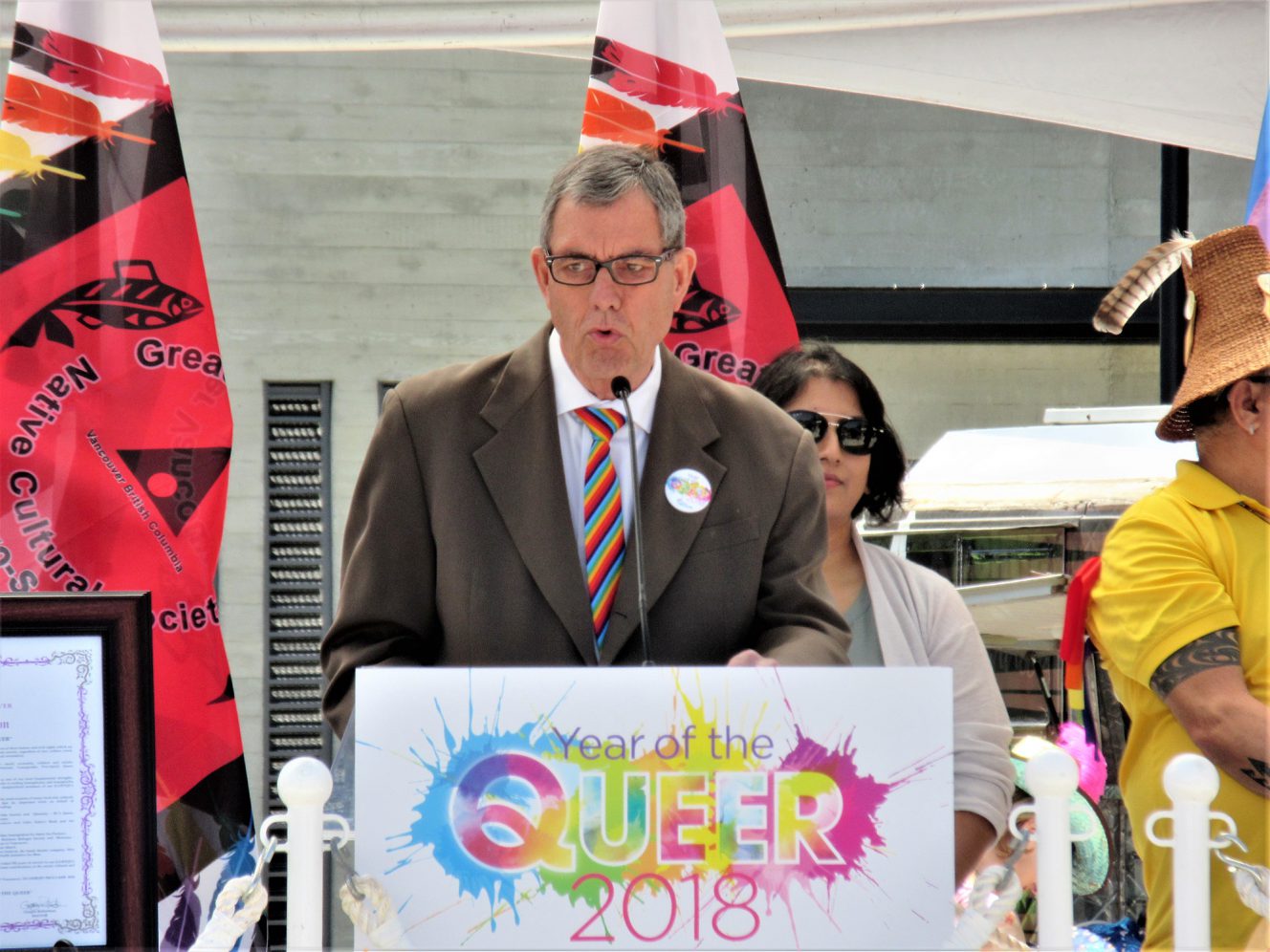
Image courtesy of GayVan.com
By Angus Praught
Deputy Mayor Tim Stevenson and the Very Reverend Dr. Gary Paterson are a high-profile Vancouver couple, and champions of LGBTQ2+ rights and freedoms. For decades, they have been at the forefront of life-changing legislature and religious reforms that have helped shape Vancouver into the diverse and inclusive city it is today.
Today we are talking to Deputy Mayor Tim Stevenson, a Canadian politician and United Church minister, whom is currently an elected member of Vancouver City Council and a founding member of Vision Vancouver party. He was the first openly gay person to be elected as an NDP MLA in BC’s provincial parliament (1996), the first in Canada to be appointed as cabinet minister (2000), has had multiple re-elections as a Vancouver City Councillor since 2002, and was appointed Deputy Mayor of Vancouver in July, 2017.
Stevenson has also been on the forefront of diversity and social change in the city since the 1970s and many of his career accomplishments have made Vancouver one of the most LGBTQ2+ welcoming cities in the world.
Angus Praught: Good morning Deputy Mayor Stevenson. Thank you for taking the time to speak with us.
We realize that you have an extensive political and professional career, both in Canada and internationally, however today due to space limitations for our discussion we are hoping you will speak to us about some specific topics that relate to a few of the firsts you have accomplished, that have benefitted the LGBTQ2+ community and changed Vancouver over the years.
To start, can you take us back to the early years, and your involvement with the Gay UBC movement in 1980?
Deputy Mayor Tim Stevenson: Well, I came out in 1975 and I was pretty determined to make sure that younger people who followed me wouldn’t have to go through that very difficult process that I had coming out. In 1978 I left my job with the Ministry of Labour and decided to do a degree at UBC. I immediately joined Gay UBC the first week that I was there because I thought that it would be an outlet to get involved. By that time, I had already gone down to what was then called a “Gay Conference” in Minneapolis and came back with a lot of enthusiasm and ideas on how to bring about change.
I very quickly became the president of Gay UBC. Then in 1980, I had heard about a gay week on a campus in the States and thought that would be fabulous for UBC, so in 1980 we had our first Gay Week at UBC. So that was also really my first foray into the political realm, although I was still somewhat apprehensive about having my name in the papers and elsewhere. So those were, if you like, the early days when I began to feel my way politically and found out, “oh, it really isn’t all that scary”, and I began to build on that. My time at UBC and as president of Gay UBC was formative for me and set a trajectory of what was to follow over the years.
AP: In 1992 you were ordained by the British Columbia Conference of the United Church of Canada – and the first openly gay person to be ordained in Canada. Can you tell us about this, and how you were received as an openly gay person at that time?
DMS: Sure, and we have to remember this was a long process and in 1992 the ordination was the culmination of many years. After I left UBC, I went to the Vancouver School of Theology in 1981. At that time, I wasn’t sure that I wanted to go into the ministry, but I wanted to test it and wanted to study theology. Religious Studies had been my major at UBC, so after a fairly short period of time, after becoming involved once again in the United Church, I grew up in the United Church, and decided I would go into ministry.
Then there was a whole series of processes that that sort of set off, and hoops if you like, to jump through, starting at the local level with the congregation, then the conference level, and then the national level. The church was going through the whole process of working on sexuality, homosexuality, and the stance that they were going to take, and finally in 1988 the church made a decision that they would ordain openly gay people and that gave me the flag to go through. However, I didn’t go through immediately because there was quite an uproar, both within the church and the country, that a gay person would be ordained. After a couple of years, I did it, and in 1992 I was ordained. But the big problem was where to place me, and the church had a huge problem with that. It was one thing to ordain, but another to find a church that would accept a gay person, and finally they came up with Manitoba. I was sent to Manitoba initially, but then the churches in Manitoba had a vote and decided they didn’t want me. So, I was back in Vancouver again. The next year I was in a church in Burnaby, where I had been a student intern – they said that they wanted to have me, so I was finally placed there, and that’s where my ministry began, before I began my political life.
AP: You were also the first openly gay MLA elected in British Columbia in 1996, and the first openly gay cabinet minister in Canada in 2000. Can you take us back to that time and some of the challenges you faced?
DMS: Well, yes. The NDP came to me, as they wanted to run an openly gay candidate, and they knew that here in this riding (Vancouver Burrard), there was a Liberal candidate who was openly gay, Duncan Wilson, and he was going through their process. So, they felt it was important to find someone to run against him. There was nervousness about this, as no openly gay candidate had won anywhere in the province previously, but they realized this was the best opportunity, and particularly when they knew that it looked like a Liberal candidate was going to be openly gay, so it wouldn’t be people choosing a straight person over a gay person. As far as cabinet was concerned, that came about when Ujjal Dosanjh became premier and he was very keen that I go into cabinet. I think part of that was that he was Sikh himself, and the first Sikh premier in the country. He really valued diversity and was therefore very open to a gay person coming into cabinet and being the first one in Canada. That went relatively smoothly, and I had been Deputy Speaker of the legislature before that, and a Parliamentary Secretary before that, so I think that it was a relatively easy transition.
AP: You performed the first legal gay wedding in the province in 2003. Where did this take place, and what was the public reaction?
DMS: It took place on the steps of the courthouse, and the couple who got married was a couple who had come to my church in Burnaby. They had asked if I could perform their ceremony in the church. This was before it was legal, but the United Church allowed what we called “covenenting ceremonies”, or “blessings” within the church because it was taking so long for the legislation to go through the courts. So, I did perform the ceremony for them back in 1994 at the church. I left and went into politics after that and hadn’t seen them for a while then one day out of the blue I got a call from them, saying they were in this court process with a number of other couples and expecting it to come through with a positive result. They asked if it did, would I do it. So we went to the courthouse that morning, the ruling came out “yes you can get married”, so when they came out we did it right there on the steps, and there was huge interest from the media, as we did this first legal marriage in BC.
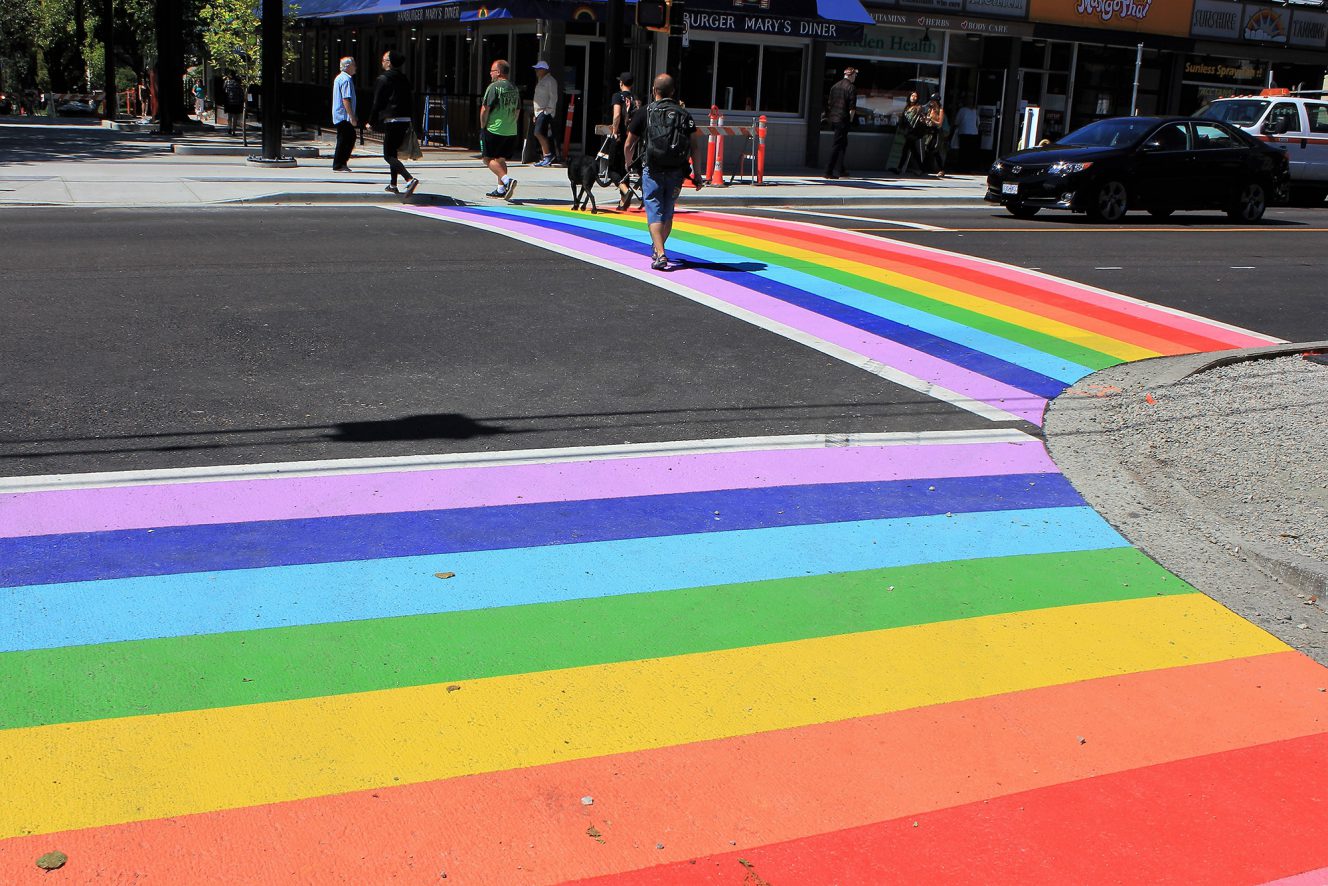
Image courtesy of GayVan.com
AP: Over the years, you have spearheaded a number of highly visible civic achievements, including 35 years of Stonewall, which led to the Pride Proclamation and flag raising at City Hall, the painting of the steps at City Hall in rainbow colours for Pride, the rainbow crosswalks and development of Jim Deva Plaza in Davie Village, the LGBT advisory committee, the Pride Parade being recognized as a civic event, and most recently the proclamation of 2018 as the “Year of the Queer” at Vancouver City Hall, to name a few. These are bold and unique undertakings for a major city, and we are wondering if you can give us a brief glimpse into how some these amazing things came about?
DMS: To start, the Stonewall anniversary came along and at that time Ellen Woodsworth was also elected with me, and we decided that we needed to have a celebration of this and have it at city hall. We worked closely together on this, and that is when we started to first involve staff, and I began to realize how important it was to have staff, not only just on side, but enthusiastic about it. Indeed they were, and it was a huge accomplishment. The staff had the stairs all the way up to city hall painted in the rainbow colours, which was magnificent, and we had a wedding for a gay couple on the stairs. It was really the first kind of major involvement that the city ever had with our community and made me realize how important it was to anchor it into city hall, to have the city say to our community “you are welcome”, “you are really welcome here, you’re part of the city, an important part of the city”. This led to a lot of other important things happening with the city over the years, including a Pride Week that starts at City Hall. We now always have a panel inside the Council Chambers and a celebration outside, so Stonewall was very important, and working with Ellen Woodsworth at the time was also very important. It’s also really key to remember how important it is to have councillors, from all parties, and the staff onboard for these events and I’ve been very, very fortunate. This has all come about with the cooperation, and not just cooperation, but enthusiasm, of the staff and councillors.
Probably, over the years, the most important thing that I’ve done is to be active as an openly gay person giving input, and that’s why I am so keen on openly gay, bisexual, lesbian, transgender and two-spirited people being involved after I leave. Over the years, our community has stepped forward and we’ve been open, so people have changed their minds and hearts and we’ve been able to accomplish a lot.
AP: There was both surprise and disbelief for many when they heard that you will be retiring from public office in 2018. You have been a highly visible and public voice for Vancouver’s LGBTQ2+ community for decades and perhaps some just thought and hoped you would always be there. Can you tell us how you reached this decision, and when will it officially take place?
DMS: It will officially take place after the election, which is at the end of October. The new council is sworn in at the first part of November, so after the new council is sworn in my responsibilities are over, legally, and I will no longer be a councillor. I have been wrestling with this for some time – when is a good time and about what Gary and I want to do. I just turned 73 last week and I realized that to go on for another four years I would be pushing 78 and thought I would rather use these years to do some other things. We want to travel, but I also have a pretty strong feeling that I’ve done what I’ve needed to do; I’ve accomplished actually everything that I set out to do and if I stayed on, I’d be just spinning my wheels. I think the Qmunity Centre project was the final piece for me; I really was keen to get funding, which I did for seven million dollars. I got the location, the city bought the lot at Davie and Burrard, and I managed to get McLaren House in housing for HIV people on top of that. The last piece, which is very exciting to me, is Rainbow Refugee and I feel like this is kind of bookends things for me, that I’ve accomplished what I wanted for the community. I very strongly feel that I came out of the community, and that’s who I’m responsible to. Yes, I’m elected for all of the city and I’m a councillor for all of the city, so I’m obviously involved in everything, and not just community issues, but I came out of the LGBTQ2+ community and I’ve had a trajectory of getting things accomplished for our community as well as the broader community. So, I just think the time has come and it’s time for younger people and younger voices. I’m so pleased with the Advisory Committee at City Hall, which I was able to establish, and is full of younger people who have new and exciting ideas. There’s a definite sadness for me that I won’t be involved, and I love to be involved, but I think it’s my time.
AP: Thank you very much, Deputy Mayor Stevenson
DMS: My pleasure, Angus
2018 is turning out to be another year of firsts for the city of Vancouver, as well as a year of major political change. It will be fascinating to see what the future holds.
Angus Praught is president of Gayvan.com Travel Marketing, a Vancouver-based company featuring LGBTQ2+ welcoming destinations, in the Vancouver region, Canada, and beyond.
Sign up for the Out In Vancouver newsletter if you are interested in hearing about more non-heteronormative news, events, and culture that are part of Vancouver’s cultural mosaic, and to get notified on the latest contests.










